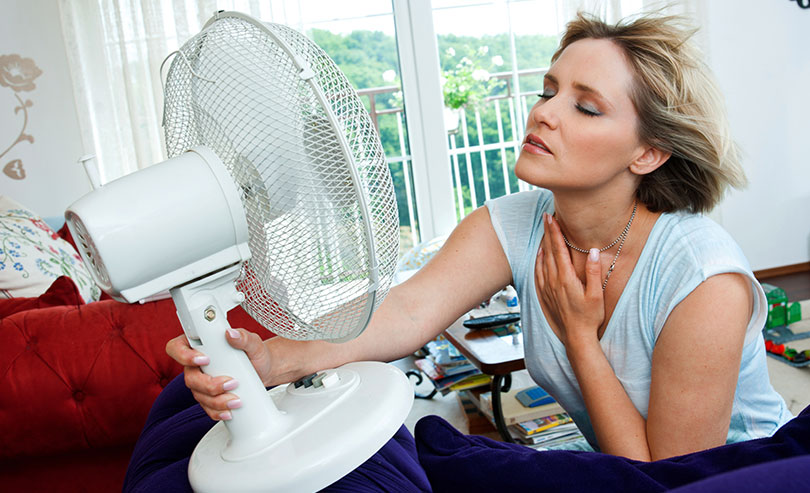
Photo Credit: monkeybusinessimages / istockphoto.com
8. You Might Become a Night Owl
There are a number of reasons why you might find you can’t sleep as well as you used to, waking in the night or suffering from insomnia.
Decreasing estrogen can cause lower magnesium levels – magnesium is the chemical that helps your muscles relax. An imbalance can make it difficult to fall asleep. Consider a supplement or try eating magnesium rich foods like dark chocolate, dried fruit, yoghurt and beans.
Night sweats and hot flashes can disrupt sleep too – make sure you sleep in natural fabrics, keep your room cool and consider keeping a water spray or fan handy to beat the heat.
You can take simple steps to help you get the best night’s sleep possible – cut down your intake of sugary foods and caffeine (remember caffeine is in chocolate and lots of beverages, not just coffee), get some exercise during the day, and try to stick to a regular sleep routine.
Try some relaxation techniques like yoga or meditation, which will help you fall asleep and go back to sleep if you wake in the night.
Read more about menopause, including how long you can expect symptoms to last, over at NewLifeOutlook.
A common issue associated with menopause is frequent urination. Learn how to cope with both menopause and frequent urination here.







